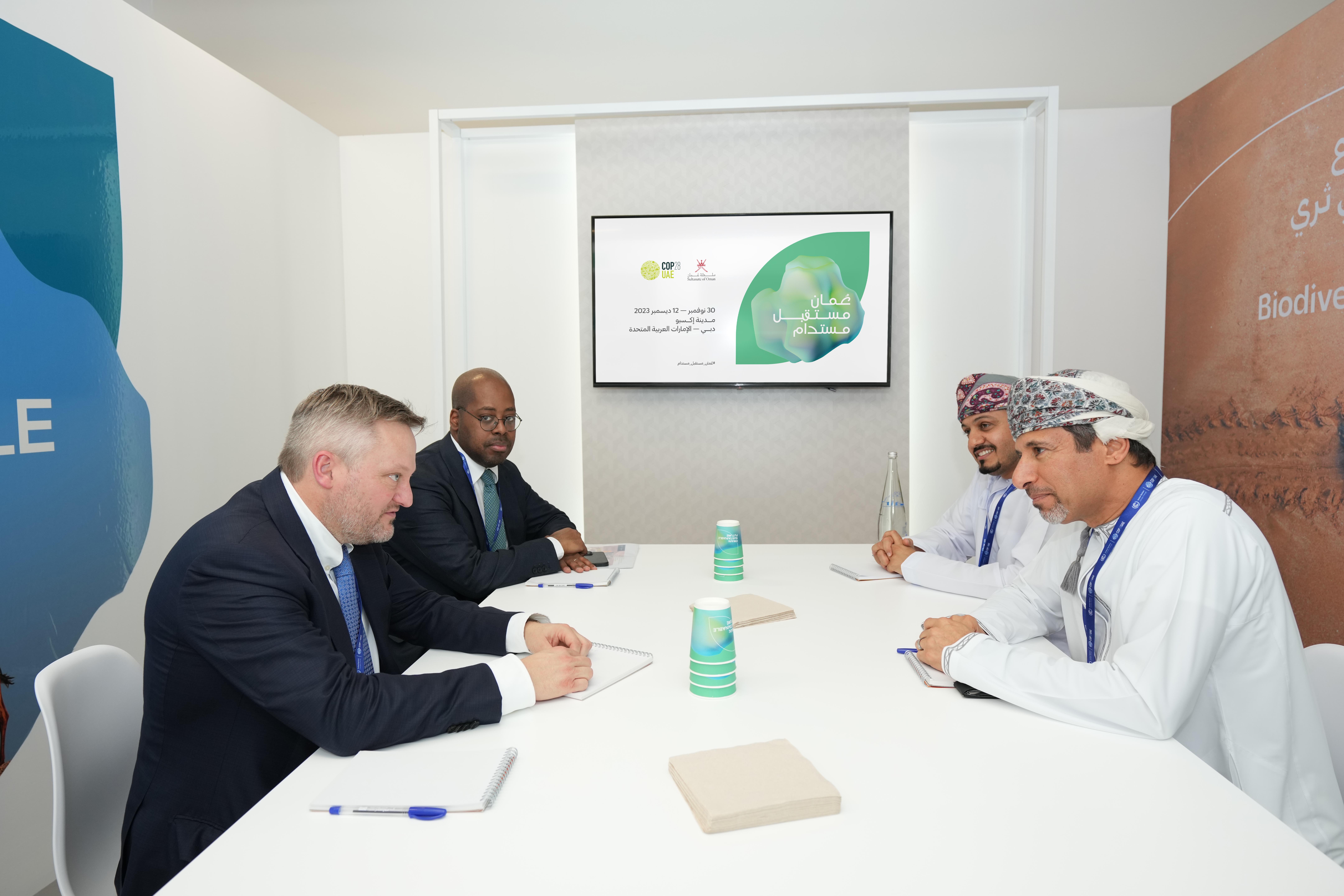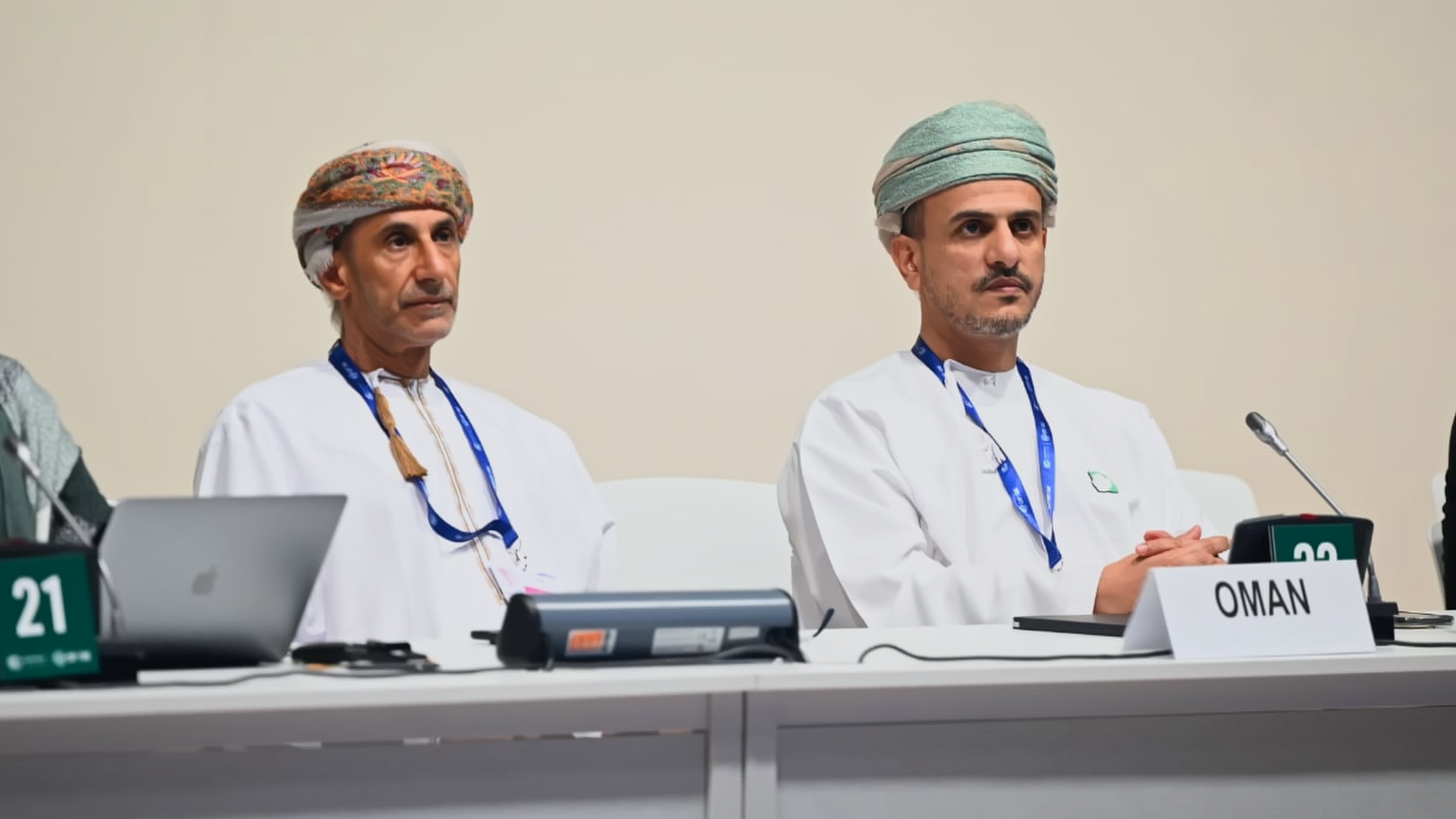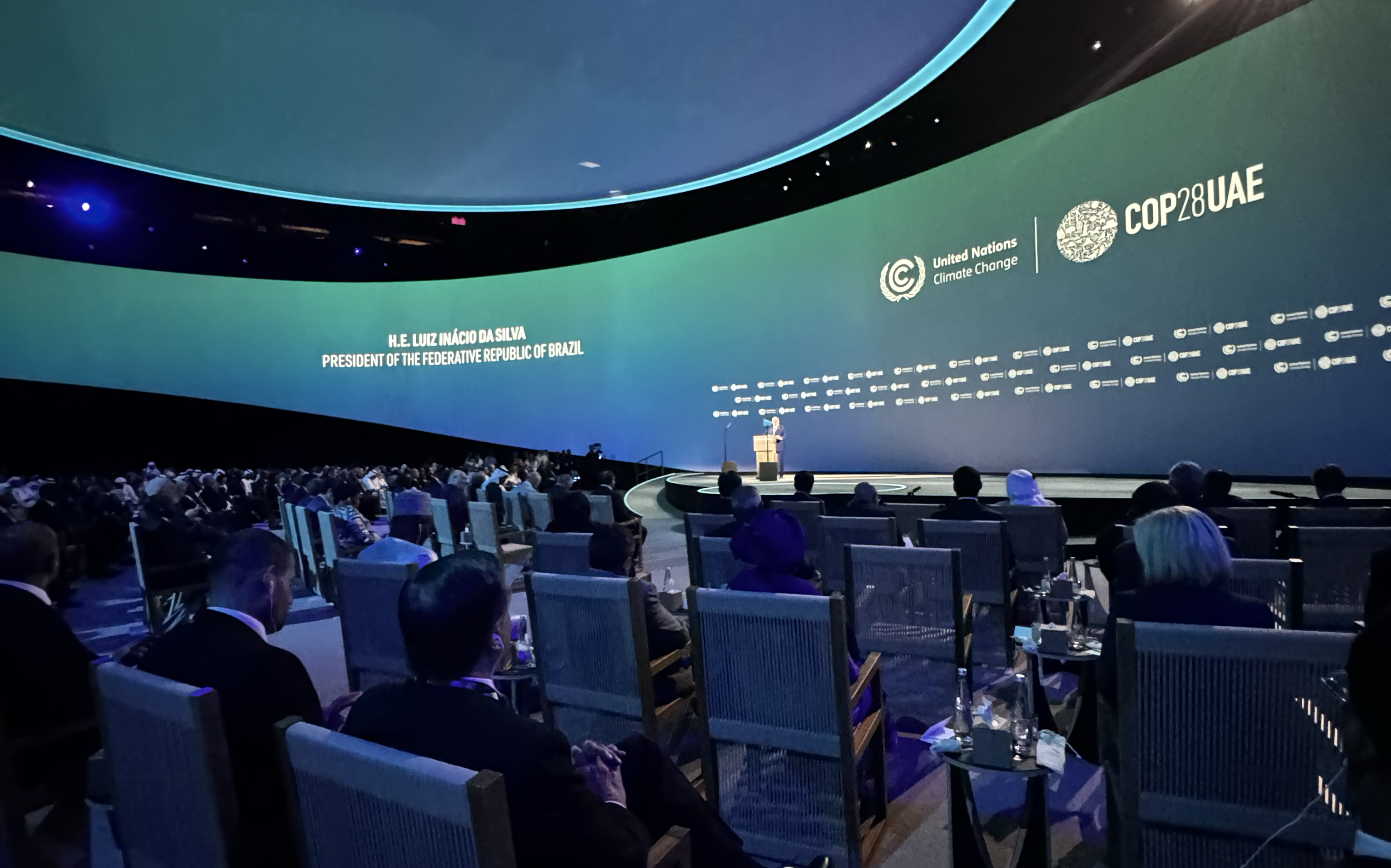His Excellency Engineer Salim bin Nasser Al-Aufi, Minister of Energy and Minerals, participated in the opening of the World Climate Action Summit, while heading the delegation of the Sultanate of Oman participating in the twenty-eighth session of the Conference of the Parties to The United Nations Climate Change Conferences (COP28), which is hosted by the city of Dubai in the United Arab Emirates from November 30 to December 12, 2023.
The opening of the summit was attended by a number of world leaders, relevant ministers, and the Secretary-General of the United Nations. This event is organized annually with the participation of member states of The United Nations Framework Convention on Climate Change (UNFCCC), which was signed in 1992 and began its implementation in 1994. This agreement aims to reduce the impact of human activities on climate change by taking measures to mitigate climate change.

For his part, His Excellency the Engineer held a number of bilateral meetings, during which he met with a number of regional directors and CEOs of a number of energy companies in bilateral meetings, on the sidelines of the work of the Conference of the Parties. During these meetings, a number of topics related to the work of these companies globally and locally and current and future production rates were discussed. They also discussed the conditions of global markets, the challenges of reducing carbon emissions, and ways to overcome them economically.

For his part, His Excellency Dr. Abdullah bin Ali Al-Amri, Chairman of the Environment Authority, and His Excellency Sheikh Humaid bin Ali Al-Maani, Head of the Global Affairs Department, Ministry of Foreign Affairs, participated on the sidelines of the summit in the climate change adaptation meeting. In this meeting, the Sultanate of Oman presented an intervention by His Excellency Sheikh Humaid Al-Maani in which he stated: “The risks resulting from global warming and climate change have become clear and obvious to sectors and development systems at the level of the various continents and regions of the world. They are consistent with the assessment reports issued by the Intergovernmental Panel on Climate Change (IPCC) during the past three decades, the most recent of which was the sixth assessment report (IR-6) issued by this body in March 2023.
He also said, “As you know, one of the most important effects of global warming and climate change is severe fluctuations in weather conditions and the global climate, such as an increase in temperatures, extreme heat waves, severe cases of drought and floods, in addition to a rise in the surface level of the seas and oceans, and variations in the amounts of rainfall. These have harmed various sectors and development systems, including environmental, climate and ecological systems at the level of the various continents and regions of the world. Four major global indicators of climate change, namely, concentrations of greenhouse gases, rising sea and ocean surface levels, rising ocean temperatures, and ocean acidification, have reached new record numbers. This emphasizes once again that human activities clearly contribute to global warming and climate change on land, in the ocean, and in the atmosphere, with long-term repercussions and risks at the level of the different continents and regions of the world.”
His Excellency added, “The above-mentioned national strategies are based on several main axes in the various development sectors in the Sultanate of Oman, including investing in clean green hydrogen and its use in those development sectors, expanding projects for the production and use of renewable energies, especially solar energy and wind energy, and implementing national campaigns to farm millions of local trees in various governorates of the Sultanate of Oman.
His Excellency stressed, “The Sultanate of Oman is working to achieve a balance between environmental, economic and social requirements and to work with the rules of sustainable development. It takes into account the advancement of economic and social aspects with the importance of preserving environmental and climate systems and preserving its natural resources in order to achieve the goals of sustainable development in the development sectors, in addition to fulfilling the obligations of The Sultanate of Oman in international agreements on climate action.
He also stressed in his speech that the Sultanate of Oman believes that the decisions issued by the World Climate Action Summit and the Twenty-Eighth Conference of the Parties are consistent with the principles of the United Nations Framework Convention on Climate Change and the Paris Agreement on climate change. He noted that they are comprehensive and transparent and adhere to the principles of justice, fairness, and common responsibilities but with different burdens and capabilities of the states parties. Specific to each of them in light of the different national circumstances. Appropriate means of implementation should also be provided, such as capacity building, technology transfer, and financial financing for developing countries, including the Sultanate of Oman, and for the concerned States Parties to fulfill their financial pledges to developing countries, including the Sultanate of Oman, in order to enable them to take basic procedures and measures to reduce greenhouse gas emissions and adapt to system fragility and climate change risks.

The Sultanate of Oman is actively participating in this conference under the slogan “Oman a Sustainable Future” as an extension of its participation with the rest of the world to find practical and sustainable solutions to global problems and to review its efforts through the strategies, policies, and initiatives it is implementing to reduce greenhouse gas emissions, protect the environment and its sustainability, and promote renewable energy. The Sultanate of Oman has taken important steps to achieve zero carbon neutrality through the Royal directives to set the year 2050 as the date for this, and the establishment of the Oman Sustainability Centre.